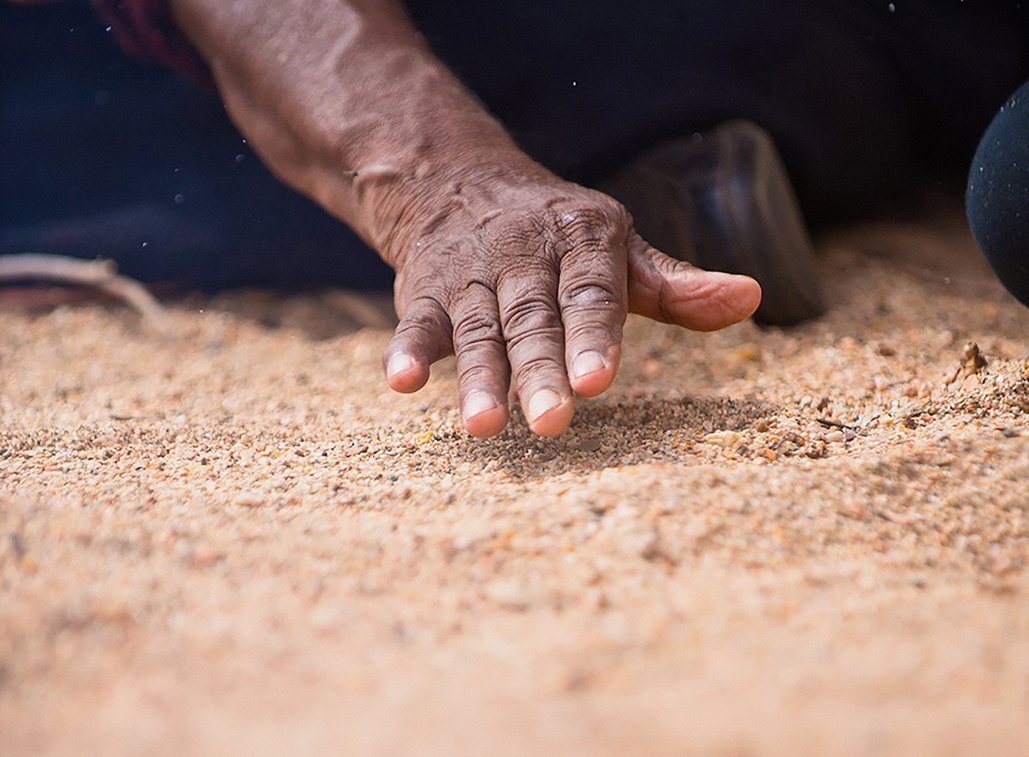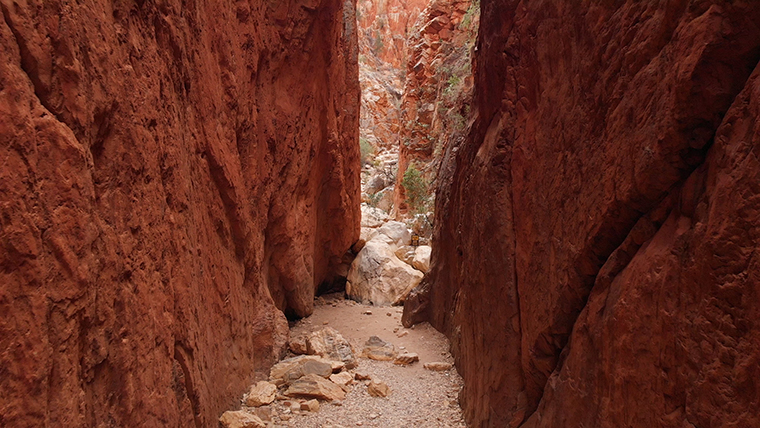Imagine a time when First Nations people, knowledge and stories are valued and centred in every system in Australia. This is the vision of Common Ground – a First Nations not-for-profit that brings together First Nations knowledge, cultures and stories. Whether it’s sustainability, creativity, land care, wellbeing, governance, agriculture, art, fire management, biology, astronomy, philosophy or history – Common Ground is on a mission to embed First Nations knowledge into the fabric of our communities.
Founded by Kaytetye woman Rona Ngamperle Glynn-McDonald, Common Ground is a team of five First Nations women, with an all-First Nations board of directors, and a growing network of First Nations contributors from across the continent and its surrounding islands.
“We’re working to change systems by changing mindsets”, says Gemma Pol, Communications Manager at Common Ground. “We work with First Nations creatives and teachers to create content and educational resources. We work with First Nations communities to record old stories in new ways. And we develop strategic partnerships in different systems to deliver unique and impactful projects.”
The Common Ground team are working to fill the knowledge gap left by the Australian education system. “One of the biggest barriers to knowing more about First Nations people is the lack of truth-telling in our school curriculums and mainstream media”, says Gemma. “We are constantly told stories about First Nations disadvantage and taught lessons about the “discovery” and “settlement” of what we now call Australia. This is not how we First Nations people see ourselves and our shared history.”
One of the biggest changes Common Ground would like to see is a shift from learning about First Nations people as the subjects, to learning from First Nations people as the experts. “We’d like to see more active allies – people who are committed to having honest conversations about this continent’s history, however uncomfortable it may be.”
So how can we as individuals and workplaces support this change to help become a more fair and inclusive society? First and foremost, we need to learn from First Nations people, not just about First Nations people. Gemma recommends following First Nations people and creators on social media, buying and reading books by First Nations authors, and connecting with local First Nations communities by reaching out to the land council/Traditional Owner groups of your local area or booking a cultural tour.
In the workplace, we can create space for First Nations people to hold workshops and seminars, buy art and resources from First Nations-owned businesses and hire First Nations people ensuring our workplaces are culturally safe. “And if you’re bringing First Nations people and cultures into the workplace, it’s important to make sure we are always paid appropriately for our time, energy and knowledge, as historically this was never the case.”
At the heart of Common Ground’s work is creating space for First Nations people to be authors on their terms. The team recently held their first-ever in-person gathering with the Creators Circle – a small group of First Nations storytellers who are working closely with Common Ground to dream up ideas for projects, create content, and contribute to the organisation’s strategy. They came together in Mparntwe (Alice Springs) to listen to and learn from Elders, activists, entrepreneurs, writers, filmmakers and each other.
“I have previously doubted my place in the creative realm, worried about what ifs and negativity,” one participant said. “I’ve never believed in myself as much as I did when encouraged by this team of amazing First Nations people. I am a storyteller. This has always been my calling.”
Australia is built on a story that ignores its true history. We face many challenges but ignore many of the solutions that First Nations people hold. Common Ground exists to bring connection, truth and deeper understanding through storytelling. Because First Nations people are the original storytellers, and their knowledge systems as old as time.

 Share this on LinkedIn, Twitter
Share this on LinkedIn, Twitter